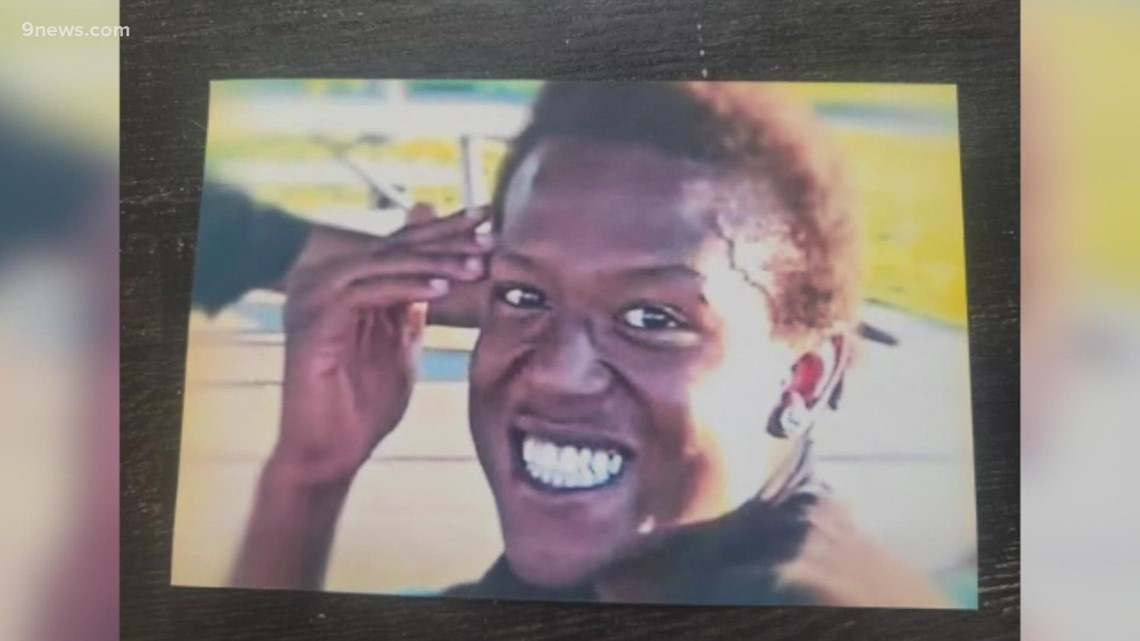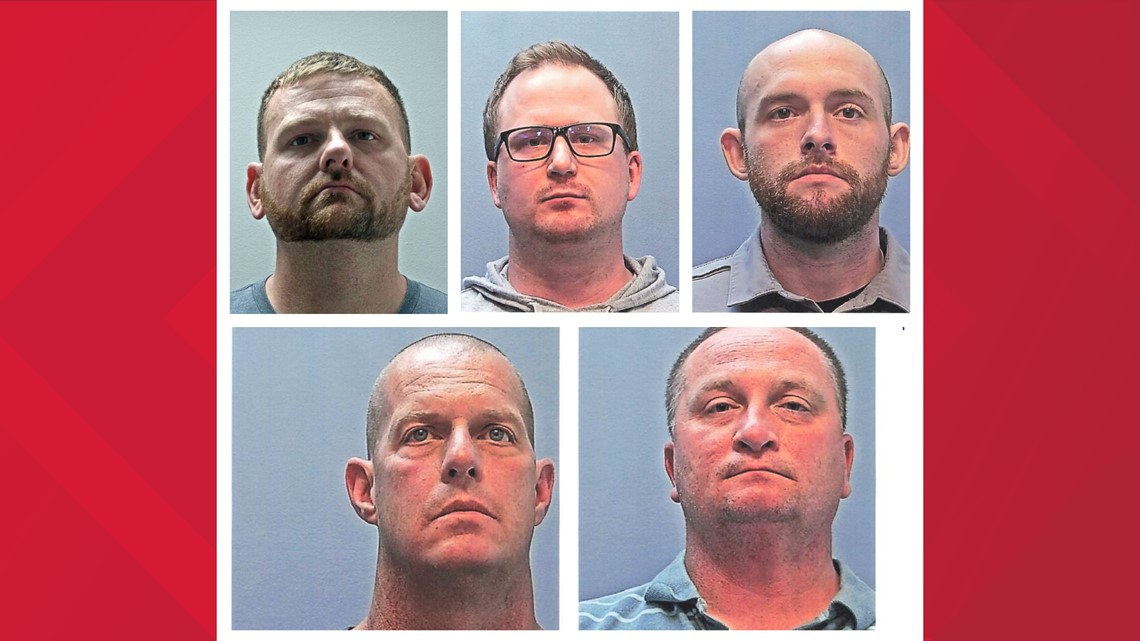AURORA, Colo. — Aurora police officers engage in racially biased policing – treating Blacks and other ethnic minorities differently than whites – and repeatedly use “unlawful and unconstitutional” excessive force, according to a scathing report from Colorado Attorney General Phil Weiser made public Wednesday.
"We observed officers, using force to take people to the ground without first giving an adequate time to respond to commands," said Weiser. "We observed officers, immediately escalating situations and circumstances in which the subject is in obvious mental health distress that did not present an imminent risk of harm to themselves or others."
In addition, the department has failed to document investigative stops – known as “Terry stops” – as required by a 2020 police reform law.
“This leads to an entire category of police interactions … for which there is little to no documentation, and as a result, even less scrutiny,” according to the report. “Compounding this problem, Aurora police policies in effect since 2020 do not provide adequate guidance to officers on when a Terry stop is appropriate under the law.”
>The full report is available to read near the bottom of this story.
The report, which is the first of its kind from the attorney's general's office, was the result of a 14-month investigation sparked by a number of high-profile incidents, including the 2019 death of Elijah McClain, who was confronted as he walked along an Aurora street, taken to the ground and handcuffed. He later died.
Investigators conducted 220 hours of ride-alongs, analyzed over 3 million records, attended nine months of weekly force review board meetings where body camera video is reviewed, and read nearly 3,000 reports from the last five years relating to the use of force.
> Video above: Legal expert discusses grand jury indictments in Elijah McClain case
RELATED: Panel recommends more accountability in independent investigation into death of Elijah McClain
The investigation also found that Aurora Fire Rescue (AFR) medics regularly break the law by administering the anesthetic ketamine when they shouldn’t.
"Aurora Fire relied on a ketamine review process that did not adequately ensure that paramedics follow the legal requirements for administering ketamine," Weiser said. "Its review process failed to identify problems when ketamine was inappropriately administered, or it was administered at the request of police in violation of the law," Weiser said.
The drug, which has been used to calm people, was administered to McClain after police stopped and detained him.
AFR Chief Fernando Gray released a statement saying in part that they no longer use ketamine.
"The primary issue identified by the Attorney General for our department was related to the use of ketamine," the statement from Gray says. "Although this medication was removed from our system more than a year ago and we have no plans to reintroduce this medication into our system, we find value in the report."
He went on to say that before the report was complete, the AFR had already taken a "myriad" of steps including improving patient care documentation and modifying the medical protocols to provide additional clarity between police and fire on medical interventions. Gray said much of what they've implemented has addressed concerns in the report.
The report called for Aurora to enter what’s known as a “consent decree” – an agreement requiring specific changes and ongoing, independent oversight of the department. The city has agreed to try to develop one, but the report said if that effort is unsuccessful “we will seek a court-imposed order correcting these problems.”
"We have 60 days to work with Aurora to reach an agreement to fix these problems," Weiser said. "We plan on doing so. And developing a consent decree that addresses the required changes in a way that has the best chance of making meaningful reforms. The court will be responsible for overseeing the implementation of this consent decree. And that effort to be aided and informed by a third-party monitor who will look closely at the changes being made."
According to the report, "Most failures with Aurora police relate to systemic and severe culture problems." It cited three specific examples:
- The department’s culture “leads to the frequent use of force, often in excess of what the law permits,” which it blamed on an “ad hoc” training program and policies that often do little more than recite legal requirements established in court cases and applicable laws or regulations.
- The department’s system for examining the use of force fails to meaningfully review incidents and favors “findings that officers followed policy and that hamper candid feedback on how to improve.”
- The city’s charter gives the Aurora Civil Service Commission total control over the hiring of entry-level officers and the power to overturn “all meaningful discipline” the police chief can impose. That undermines the chief’s authority and allows officers who violate the law or department policies to stay on the job. In one instance, former Police Chief Nick Metz fired a lieutenant who referred to a group of Black residents as “Alabama porch monkeys” – and the civil service commission overturned that decision.
The report focused extensively on the department’s treatment of ethnic minorities – particularly Blacks. It found that between 2015 and 2019, Blacks accounted for 16.5% of the city’s population but 40% of its arrests.
It also found that during those same years use of force cases involved Blacks 45.9% of the time.
“These actions are unacceptable. They hurt the people that law enforcement is entrusted to protect. And they destroyed community trust," Weiser said.
In looking at use of force, the investigation reviewed more than 2,800 reports.
It found that the department “generally approaches the use of force with a what-can-be-justified-under-the-outer-limits-of-the-law approach” instead of looking at what force is necessary in a particular case.
> Watch below: Representative Leslie Herod and attorney Mari Newman respond to the AG's scathing report on Aurora PD's policing.
The report used blunt language to describe various situations: “We observed officers using force to take people to the ground without first giving them adequate time to respond to officer commands; using more force when people subject to pain-control techniques respond with expected resistance; and generally reciting ‘stop resisting’ when trying to control subjects when body-worn camera footage and other available information does not suggest such resistance.”
"We'll hold Aurora accountable for the past patterns and practices by appointing an independent monitor to oversee ongoing changes. It's critical that we take this opportunity to do meaningful and lasting change," said Weiser. "To that end, we're prepared to move forward with legal action is necessary to address these issues. We are thankful and grateful that the leadership of the city of Aurora, Aurora police and fire rescue have shown, and stated, a commitment to seize this opportunity to improve and build community trust in law enforcement."
In response to the report, APD Chief Vanessa Wilson released the following statement.
We remain committed to cooperation and seeking solutions which keep the best interests of our community and public servants at the forefront.
In the coming weeks, we will work with the Attorney General’s Office to determine how to implement necessary and sustainable changes. The final consent decree will serve as another resource in our path forward.
Today is incredibly difficult for not only the Aurora community but this agency. We acknowledge there are changes to be made. We will not broad brush this agency or discount the professionalism and integrity that individual officers bring to our community every day. I am proud to say the Aurora Police Department began the implementation of many changes over the last 21 months, while this and other investigations were ongoing. Those changes have improved overall policing, de-escalation training, community outreach and engagement. I have and continue to hold officers accountable as evidenced by my recent disciplinary actions, which are supported by many officers in the department who are proud to wear our badge.
The report acknowledges the dedicated work we have already achieved and are committed to seeing through. I consider this report as one facet of a comprehensive effort to provide the highest quality police officers and level of service to our community in Aurora.
>Read the full report below.
Prior to the passage of a new law, the AG did not have the authority to conduct a pattern of practice investigation. This was the first one conducted in the state but nearly a dozen others are in the works, according to the AG's office.
Earlier this month, Weiser announced that a grand jury returned a 32-count indictment against two current and one former Aurora police officer in connection with the August 2019 death of Elijah McClain. Two Aurore Fire Rescue paramedics were also indicted.


McClain, 23, died after police put him in a carotid hold, and paramedics gave him the sedative ketamine on Aug. 24, 2019.
EDITOR’S NOTE: 9NEWS has updated the language used to describe the circumstances that led to Elijah McClain’s death.
Those indicted in connection with McClain's death include:
- Current Aurora officer Randy Roedema
- Current Aurora officer Nathan Woodyard
- Former Aurora officer Jason Rosenblatt
- Aurora Fire Rescue paramedic Lt. Peter Cichuniec
- Aurora Fire Rescue paramedic Jeremy Cooper


All four of the current employees have been placed on unpaid leave, according to the city. Each of the five people indicted faces one count of manslaughter and one count of criminally negligent homicide.
Roedema and Rosenblatt also face a count of second-degree assault with intent to cause bodily injury and one count of a crime of violence, which is a sentencing enhancer related to that assault charge.
Cichuniec and Cooper also face a count of second-degree assault with intent to cause serious bodily injury. They face a second assault charge for "recklessly" causing injury with a deadly weapon, which in this case is related to the use of the sedative ketamine. They also face a sentencing enhancer for both of those assault charges.
Below is the full statement provided by Jim Twombly, Aurora's City Manager.
The city of Aurora staff and leadership are committed to the systemic change that is already underway in Aurora. We started that work more than a year ago. We will not waiver from our deep commitment to a ‘New Way’ of policing, ensuring public safety and serving our diverse, culturally rich community in Aurora. We are also committed to supporting our officers and firefighters. We, as a community, must support them as they continue to bravely protect our city and as we ask them to meet the expectations of transparency and reform.
I am still digesting the details of the Attorney General’s report, and it is painful to hear. It would be premature for me to comment on any specific findings at this time; however, the findings appear to align with the findings and recommendations presented from independent reviews the city commissioned more than a year ago, prior to the Attorney General’s review, and presented over the past several months – from Jonathan Smith and his team, 21CP Solutions and the Community Police Task Force. Each recommendation and finding is valuable in helping us strengthen the ‘New Way’ of policing – and serving our community – that we are already implementing.
I thank the Attorney General’s Office team for their thorough and thoughtful work. I greatly value our continued cooperation with them. We will work with them to assure the changes we have already made, and will continue to make, are in alignment with their report.
SUGGESTED VIDEOS: Elijah McClain case

